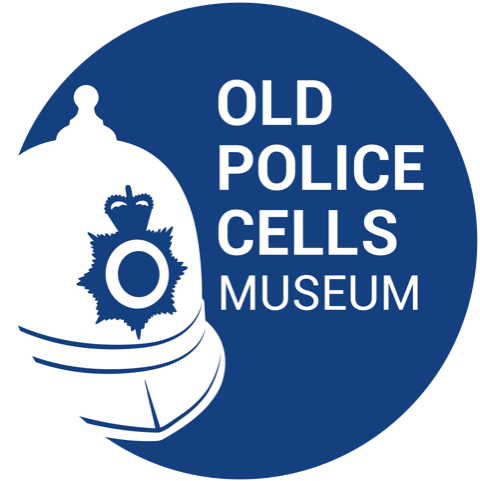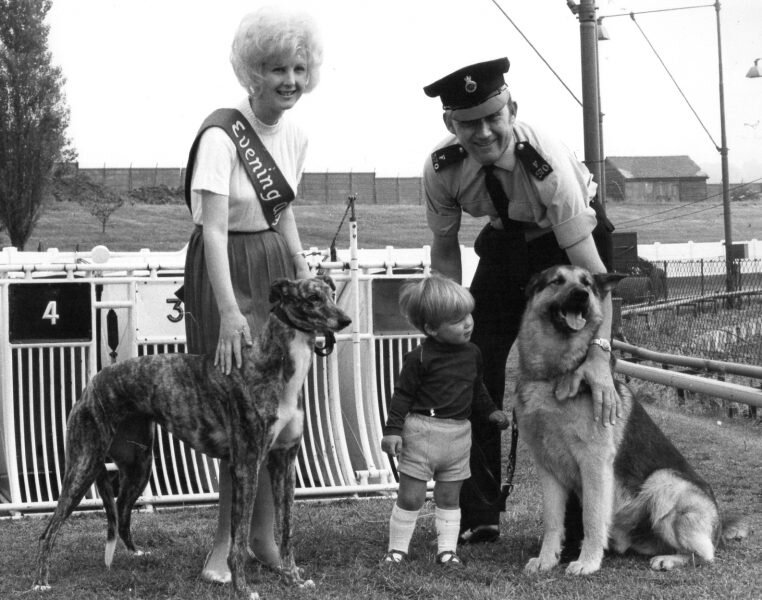Dog section - Police Constable 273 George Forrest
George Forrest
Why my working life turned out the way that it did I suppose was determined by an insignificant incident when I was 14. I had leanings toward the police service. Not that the police was part of our history, although my paternal great grandfather had served in the Metropolitan Police for 25 years ending up in Bromley as a Station Sergeant, he was the only one. He retired in 1901 with an annual pension of £77 7s 7d. I was born 7 years after he died so he cannot have had very much influence over my decisions.
Anyway, there I was filling in a form from the daily newspaper requesting application forms to be a cadet in the Metropolitan Police. My father saw what I was doing and I can recall his exact words, “Don’t sign anything until I have seen it”. I didn’t send the forms because a couple of days later he said that it would be better to get a trade or profession first and think about joining when I was 21, that way if I didn’t like them or they didn’t like me I would have a trade to fall back on.
National service
After working on building sites and completing my national service in the RAF, I still wanted to join the police, so in July 1957 I found the Town Hall police station in Brighton, collected entry forms, and went home to fill them in. They were completed and returned. Because nothing happens very quickly where paperwork is concerned I went back on to the tools, I started work again on a building site. Just before Christmas I had days off and went to Brighton for an educational test. 14 attended, only two got through, Fred Dapson and I.
Sworn in
We then had physical tests, fortunately, I was very fit. Passing all of these tests, we waited, and somewhere during December Fred and I were called to the Town Hall police station for an interview with the Chief Constable, Albert Edgar Rowsell. We were both accepted and told to see the storeman, a retired police officer, named Leo Stuckey. We were only issued with the bits of uniform that showed. Leo told us our warrant numbers. Fred had 154 and I had 273. We were then given rail warrants to the Police training college at Sandgate, near Folkestone. After training, we reported back to the Town Hall to be sworn in, which we both duly did. We were handed our warrant cards. Now it was official. I can recall thinking how strange it was that with virtually no training I now had the power to arrest people, to deprive them of their liberty.
Posting
After another week’s training, Fred and I reported to the Town Hall police station. I cannot remember the date, but it must have been early April. Fred was posted to A Division, the busy side with all the shops and nightlife, I was sent to B Division, the east side with all the dormitory estates and the domestic problems.
I spent the next 30 years working as a police officer in Brighton. I was on beat duty, either on foot, bicycle, or small motorcycle for about 8 years, then I transferred to the dog section, then after that I was on the town GP (general purpose) car, the one that was sent if there was any trouble brewing. I finally retired in 1987.
Dog section
At the time of my application to join the dog section, the section consisted of John Bray who, because of his age, service, and experience, was in charge, Pete Gibson, and Dave Rowland. Len Pattison had just left and returned to patrol duties on A Division. There seemed to be an awful lot of internal politics, of which I was not overly concerned, but combined with the circumstances, I found my way onto the section as the fourth Brighton dog handler.
My first dog was named Flash, a lovely boy but not bold enough, the heelwork, tracking, and searching were fine, but the man's work was very poor, he just did not want to chase people and bite them. Good qualities in a pet, but!!!!! After a few months elapsed it was obvious that he was not well, he lost about a quarter of his body weight of around eighty-seven 87lbs and was lethargic. The vet diagnosed a pancreatic deficiency. It was decided that the kindest thing was for him to be put down. I soaked a couple of handkerchiefs.
My second dog was Barney, previously handled by Dave, who for whatever reason had left the section. Internal politics again. Unfortunately, Barney was another of Annie Butler’s soft dogs. There I was looking for yet another dog. I spent the next few weeks looking for a replacement, taking Barney on patrol, hoping that we were not called. Eventually, I met up with John Bostock from East Grinstead and we went to Effingham to view a dog that had been offered. “Rory”. I had no doubts. We took him to Lewes where after the vets looked him over, I became his handler. No problems on his course at Surrey H Q. We were out on our own, a team.
Rory
Pete Gibson and I both lived in Hollingdean so it made sense for us to share a van and work the opposing shifts. I have no idea of dates etc, but the system worked well. It was a joy to have a fit and competent dog that I knew I could trust. I made sure that the lads knew we were about and ready for calls. I visited a number of the police stations and boxes where I knew that at specific times tea would be available, also we made a point of calling at various times to let the crews meet Rory. The other thing I did was to book on the radio giving the crew as well as the call sign, if perchance I failed to do this invariably the call came back ‘On your own then. On nights we always booked off with a bark from Rory. Might sound silly, but we were the couple that others remembered. Just what I wanted.











